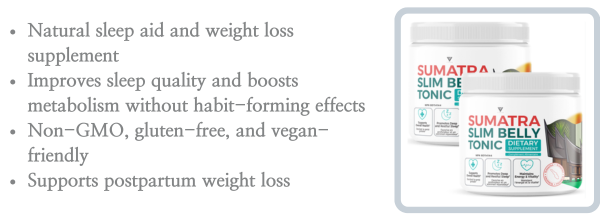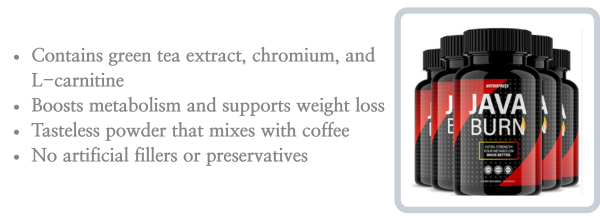
Something new has come to light in the past few years: science is now fully on board with the idea that our brains play a starring role in why we eat, even when we’re not all that hungry. Turns out, the reward system in our heads may be quietly steering the ship, especially when it comes to weight and eating patterns. People studying mindfulness have actually found some promising links—things like stress reduction and fewer reward-based eating episodes. It’s kind of wild to think simply paying more attention to how you eat (and why) could matter more than counting calories. Ever catch yourself reaching for that second helping at dinner just because it tastes ridiculously good, even if your stomach is begging you to stop? Yeah, same here. Sometimes I find myself aimlessly picking through a bag of snacks just because work or life is getting a little overwhelming—I don’t even realize what I’m doing until it’s almost gone. Funny how powerful those cravings can be, right? It’s not just us, either. Most people aren’t clued into just how much our brains—rather than our empty stomachs—are calling the shots when it comes to cravings and so-called emotional eating. So what’s actually happening when we reach for food to feel better? That’s reward-driven eating in action; it’s less about satisfying hunger and more about chasing a little hit of comfort or happiness. Think of it as your brain’s way of seeking relief or excitement, and honestly? Foods loaded with sugar, salt, or fat are especially hard to turn down because they make us feel so good—chemically, not just emotionally. Some scientists even compare that feeling to the way our brains respond to, well, some pretty addictive things. What’s interesting lately is how many people are turning to mindfulness to sort this out. Instead of obsessing over labels or calorie counts, they’re trying meditation or just taking a moment to actually pause and notice what they’re feeling (props to NCBI for digging into this, by the way). The thing people love about mindfulness techniques is that they hit at the real roots: our emotional triggers, not just what’s on our plate. Diets come and go. This stuff feels different—kind of more honest. One thing really stands out: figuring out this whole reward-driven eating business could be a game-changer for a lot of people struggling with their weight. But let’s be real—it’s not always easy, and it definitely doesn’t work the same way for everyone. Some people seem almost hypersensitive to foods that light up those reward pathways, and telling them to just “have more willpower” feels, well, a little cruel. What surprised me most, though, was reading a study from Frontiers in Psychology that pointed out something important: folks who succeed at dieting often aren’t the ones beating themselves up—they’re the ones who start to notice what actually triggers a craving and roll with it. An old friend used to joke about how her secret wasn’t going cold turkey; she just got honest about what was pulling her toward the fridge in the first place. Paying attention—really tuning in—ended up changing way more than any strict food rules ever did for her. Maybe, for most of us, that gentle curiosity is the missing piece.

Something new has come to light in the past few years: science is now fully on board with the idea that our brains play a starring role in why we eat, even when we’re not all that hungry. Turns out, the reward system in our heads may be quietly steering the ship, especially when it comes to weight and eating patterns. People studying mindfulness have actually found some promising links—things like stress reduction and fewer reward-based eating episodes. It’s kind of wild to think simply paying more attention to how you eat (and why) could matter more than counting calories.
Ever catch yourself reaching for that second helping at dinner just because it tastes ridiculously good, even if your stomach is begging you to stop? Yeah, same here. Sometimes I find myself aimlessly picking through a bag of snacks just because work or life is getting a little overwhelming—I don’t even realize what I’m doing until it’s almost gone. Funny how powerful those cravings can be, right? It’s not just us, either. Most people aren’t clued into just how much our brains—rather than our empty stomachs—are calling the shots when it comes to cravings and so-called emotional eating.
So what’s actually happening when we reach for food to feel better? That’s reward-driven eating in action; it’s less about satisfying hunger and more about chasing a little hit of comfort or happiness. Think of it as your brain’s way of seeking relief or excitement, and honestly? Foods loaded with sugar, salt, or fat are especially hard to turn down because they make us feel so good—chemically, not just emotionally. Some scientists even compare that feeling to the way our brains respond to, well, some pretty addictive things.
What’s interesting lately is how many people are turning to mindfulness to sort this out. Instead of obsessing over labels or calorie counts, they’re trying meditation or just taking a moment to actually pause and notice what they’re feeling (props to NCBI for digging into this, by the way). The thing people love about mindfulness techniques is that they hit at the real roots: our emotional triggers, not just what’s on our plate. Diets come and go. This stuff feels different—kind of more honest.
One thing really stands out: figuring out this whole reward-driven eating business could be a game-changer for a lot of people struggling with their weight. But let’s be real—it’s not always easy, and it definitely doesn’t work the same way for everyone. Some people seem almost hypersensitive to foods that light up those reward pathways, and telling them to just “have more willpower” feels, well, a little cruel. What surprised me most, though, was reading a study from Frontiers in Psychology that pointed out something important: folks who succeed at dieting often aren’t the ones beating themselves up—they’re the ones who start to notice what actually triggers a craving and roll with it. An old friend used to joke about how her secret wasn’t going cold turkey; she just got honest about what was pulling her toward the fridge in the first place. Paying attention—really tuning in—ended up changing way more than any strict food rules ever did for her. Maybe, for most of us, that gentle curiosity is the missing piece.

One thing really stands out: figuring out this whole reward-driven eating business could be a game-changer for a lot of people struggling with their weight. But let’s be real—it’s not always easy, and it definitely doesn’t work the same way for everyone. Some people seem almost hypersensitive to foods that light up those reward pathways, and telling them to just “have more willpower” feels, well, a little cruel. What surprised me most, though, was reading a study from Frontiers in Psychology that pointed out something important: folks who succeed at dieting often aren’t the ones beating themselves up—they’re the ones who start to notice what actually triggers a craving and roll with it. An old friend used to joke about how her secret wasn’t going cold turkey; she just got honest about what was pulling her toward the fridge in the first place. Paying attention—really tuning in—ended up changing way more than any strict food rules ever did for her. Maybe, for most of us, that gentle curiosity is the missing piece.
Sources
-
How mindfulness training helps break free from eating for comfort—not just hunger
-
What exactly is the “food reward” system anyway?
-
Why some people breeze through dieting—and others seem to struggle endlessly
Today’s related searches: mindfulness techniques for emotional eating, how to reduce reward-driven eating, practical strategies to stop stress eating, mindfulness for food cravings management, actionable alternatives to food rewards
Each offers exceptional value and is designed to support your health in meaningful ways


